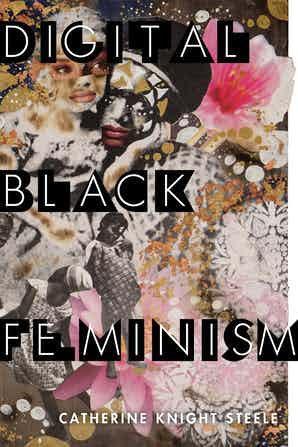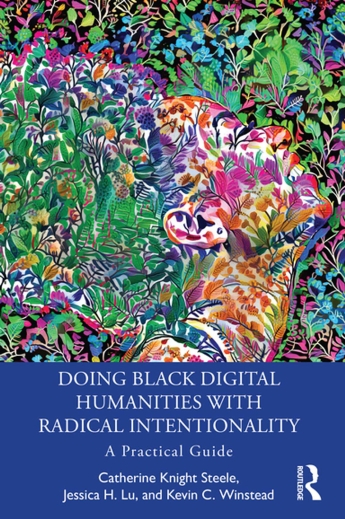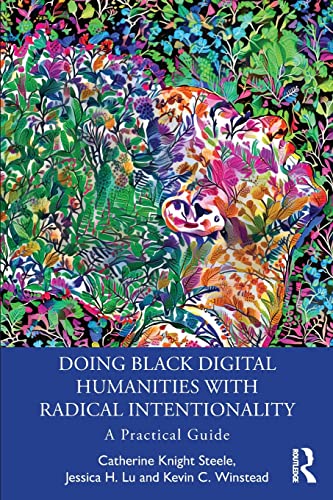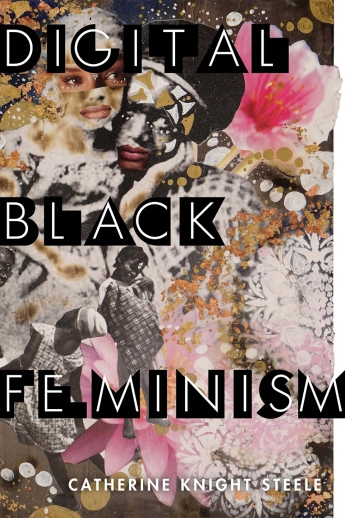Catherine Knight Steele

Associate Professor, Communication
Director, Black Communication and Technology Lab, Communication
Affiliate Associate Professor, The Harriet Tubman Department of Women, Gender, and Sexuality Studies
cksteele@umd.edu
Education
Ph.D., , University of Illinois-Chicago
Research Expertise
Digital Media
Gender
Mass Communication
Race/Ethnicity
Catherine Knight Steele is an Associate Professor of Communication at the University of Maryland - College Park and was the Founding Director of the Andrew W. Mellon funded African American Digital Humanities Initiative (AADHum). She now directs the Black Communication and Technology lab as a part of the Digital Inquiry, Speculation, Collaboration, & Optimism Network funded by the Andrew W. Mellon Foundation. Dr. Steele earned her Ph.D. in Communication from the University of Illinois at Chicago. Her research focuses on race, gender, and media, with a specific emphasis on African American culture and discourse in traditional and new media. She examines representations of marginalized communities in the media and how groups resist oppression and utilize online technology to create spaces of community. Dr. Steele's research on the Black blogosphere, digital discourses of resistance, and digital Black feminism has been published in such journals as Social Media + Society, Information, Communication and Society, and Television and New Media. Her book Digital Black Feminism (NYU Press Fall 2021), examines the relationship between Black women and technology as a centuries-long gendered and racial project in the U.S.
Twitter: @SteeleCat717
Publications
Technoskepticism: Between Possibility and Refusal
New publication by the DISCO Network, "Technoskepticism: Between Possibility and Refusal"
Author/Lead: Catherine Knig…, Rianna WalcottTechnoskepticism explores possibility and refusal in relation to new technologies, covering a wide range of pressing topics from Munchausen syndrome by TikTok to wellness apps to online communities to AI. This book was co-written by an intergenerational group of 14 scholars in the DISCO Network, a consortium of investigators working to envision a new anti-racist and anti-ableist digital future. Technoskepticism features scholarship by COMM Associate Professor and Black Communication and Technology (BCaT) Lab Director Dr. Catherine Knight Steele, and COMM Assistant Professor and Associate Director of the BCaT Lab Dr. Rianna Walcott.
Read More about Technoskepticism: Between Possibility and Refusal
Doing Black Digital Humanities with Radical Intentionality
Based on the pioneering work of scholars who created the first Black Digital Humanities program, "Doing Black Digital Humanities with Radical Intentionality" highlights how to center Black feminist care, ethics, and Black studies in digital humanities.
Author/Lead: Catherine Knig…
Based on the auto-ethnographic work of a team of scholars who developed the first Black Digital Humanities program at a research institution, this book details how to centralize Black feminist praxes of care, ethics, and Black studies in the digital humanities (DH).
In this important and timely collection, the authors Catherine Knight Steele, Jessica H. Lu, and Kevin C. Winstead—of the first team of the African American Digital Humanities Initiative—center Black scholars, Black thought, and Black studies in creating digital research and programming. Providing insight into acquiring funding, building and maintaining community, developing curricula, and establishing a national network in the field, this book moves Black persons and Black thought from the margins to the center with a set of best practices and guiding questions for scholars, students, and practitioners developing programming, creating work agreements, building radically intentional pedagogy and establishing an ethical future for Black DH.
This is essential reading for researchers, students, scholars, and practitioners working in the fields of DH and Black studies, as well as graduate students, faculty, and administrators working in humanities disciplines who are interested in forming centers, courses, and/or research programs in Black digital studies.
Read More about Doing Black Digital Humanities with Radical Intentionality
Doing Black Digital Humanities with Radical Intentionality
Based on the auto-ethnographic work of a team who developed the first Black Digital Humanities program at a research institution, this book details how to centralize Black feminist praxes of care, ethics, & Black studies in the digital humanities.
Author/Lead: Catherine Knig…Non-ARHU Contributor(s): Jessica H. Lu and Kevin C. Winstead
In this important and timely collection, the authors Catherine Knight Steele, Jessica H. Lu, and Kevin C. Winstead―of the first team of the African American Digital Humanities Initiative―center Black scholars, Black thought, and Black studies in creating digital research and programming. Providing insight into acquiring funding, building and maintaining community, developing curricula, and establishing a national network in the field, this book moves Black persons and Black thought from the margins to the center with a set of best practices and guiding questions for scholars, students, and practitioners developing programming, creating work agreements, building radically intentional pedagogy and establishing an ethical future for Black DH.
This is essential reading for researchers, students, scholars, and practitioners working in the fields of DH and Black studies, as well as graduate students, faculty, and administrators working in humanities disciplines who are interested in forming centers, courses, and/or research programs in Black digital studies.
Read More about Doing Black Digital Humanities with Radical Intentionality
Digital Black Feminism
"Digital Black Feminism" by Catherine Knight Steele traces the deep roots of Black women’s relationship to technology, spotlighting how they’ve long used tech to challenge white supremacy and patriarchy.
Author/Lead: Catherine Knig…
Traces the longstanding relationship between technology and Black feminist thought
Black women are at the forefront of some of this century’s most important discussions about technology: trolling, online harassment, algorithmic bias, and influencer culture. But, Catherine Knight Steele argues that Black women’s relationship to technology began long before the advent of Twitter or Instagram. To truly “listen to Black women,” Steele points to the history of Black feminist technoculture in the United States and its ability to decenter white supremacy and patriarchy in a conversation about the future of technology. Using the virtual beauty shop as a metaphor, Digital Black Feminism walks readers through the technical skill, communicative expertise, and entrepreneurial acumen of Black women’s labor—born of survival strategies and economic necessity—both on and offline.
Positioning Black women at the center of our discourse about the past, present, and future of technology, Steele offers a through-line from the writing of early twentieth-century Black women to the bloggers and social media mavens of the twenty-first century. She makes connections among the letters, news articles, and essays of Black feminist writers of the past and a digital archive of blog posts, tweets, and Instagram stories of some of the most well-known Black feminist writers of our time. Linking narratives and existing literature about Black women’s technology use in the nineteenth, twentieth, and twenty-first century, Digital Black Feminism traverses the bounds between historical and archival analysis and empirical internet studies, forcing a reconciliation between fields and methods that are not always in conversation. As the work of Black feminist writers now reaches its widest audience online, Steele offers both hopefulness and caution on the implications of Black feminism becoming a digital product.
When the Black lives that matter are not our own: digital Black feminism and a dialectic of self and community
A new urgency has emerged within Black feminist writing online, advocating for a dialectic of self and community interests.
Author/Lead: Catherine Knig…
Black women and Black feminist scholars have always pointed out the hypocrisy of advocating for civil rights and freedoms that do not extend to them. However, with the rise of digital culture and tools as the primary space and mechanism whereby Black feminists crafted arguments, a new urgency has emerged within Black feminist writing online, advocating for a dialectic of self and community interests. Black feminist writers have created a new rhetorical principle central to the #BlackLiveMatter movement, which began in the blogosphere with longform writing and enclaved communities. Before the hashtag or activism on Twitter or Instagram, the blogosphere provided a space for Black women to craft new arguments that centralized Black cis and trans women in the fight for justice. Black feminist writers insist that caring for themselves is integral to Black feminist praxis and social justice. Retracing this work from the blogosphere to social media reminds us of the importance of centralizing Black women in our discussion of digital culture and activism and the lessons this may provide in crafting a more just future.





